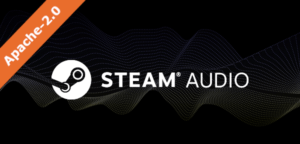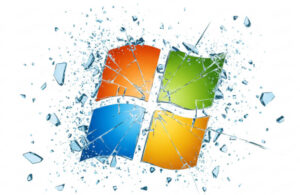Gaming on Linux
Bad news first: Psynoix’s Rocket League will not be out for Linux this year after all. Earlier this month the community manager for Rocket League, username Dirkened, said the game would be released for Linux before the end of December. However, since then Psynoix CEO Dave Hagewood told a fan of the game in an email that there will be a delay but it will still be coming out. A Valve representative with the reddit username Plagman issued an apology to the community on behalf of Psyonix, taking the blame for the delay:
Hi guys,
I want to clarify that this is entirely on us, not Psyonix; we were really trying to help them get this out as close as possible to the Steam Controller launch but ran into a series of unforeseen problems along the road. We’re working to get this resolved as fast as possible and are very sorry you didn’t get to play it on Steam for Linux this year, as we were initially confident that this would be the case but unfortunately missed our target.
Thanks,
Pierre-Loup, Valve
On a more positive note, an open-source Age of Empires II engine is in the making. Openage will be native to Linux and run using AoE’s assets. The engine is being rewritten from scratch to be an exact source port with less bugs and more features. Unfortunately, according to the project’s gitHub page, this version will not be network compatible with the original version. Build and install instructions, current features , and a link to the code can be found on the project’s website.
More good news: AMD will soon be embracing open source with a new set of gaming tools. Until now, Nvidia’s proprietary GameWorks tools have had the lead over AMD in PC gaming. To counter this, on December 15, AMD announced GPUOpen. The suite will contain open source tools, graphics effects, libraries and SDKs and promises to be a boon to game developers.
According to WCCFtech, GPUOpen will allow completely unrestricted access to the drivers, and will be licensed under the permissive MIT license, meaning developers can add include the libraries in proprietary projects. The project will also open up some previously proprietary libraries, such as TressFX for hair and fur, ShadowFX and and GeometryFX for physics, enabling developers to optimize games for Linux. GPUOpen will be launched in January.
Finally, next month in Pasadena, California, SCALE 14x, North America’s first Linux conference for 2016, kicks off and will again include the UbuCon Summit. Of special interest to gamers will be the UbuCon presentation: Gaming on Ubuntu which will be led by Jorge Castro, the cloud community liason for Canonical/Ubuntu. The presentation is tailored for beginners and will be held January 21-25.
Several gaming topics will be covered, including:
- Gaming in a couch/living room environment with a controller.
- Hardware you should use when building (or buying) a PS4/XBox-equivalent gaming machine.
- Differences between SteamOS and Ubuntu and which is right for you.
- How you can help make the experience better for the community, finding friendly people to game with.
According to Castro: “I’ll be covering howtos on controller support, video card drivers, and everything you need to setup a low maintainance gaming machine, with a little bit of HTPC thrown in for good measure. By the time we’re done you’ll be ready to put your first Linux machine under your television. ”
As a member of the SCALE team, I encourage everybody who can to attend, especially students interested in free and open source software and FOSS gaming. Registration is cheap, and there’s a 50% discount for students and school faculty — just use the discount code “STDNT” (without the quotes of course) at registration. I will be attending the expo as well, and will be reporting on any important news discussed by the panel.
Help keep FOSS Force strong. If you like this article, become a subscriber.
Hunter Banks has been a part of the Southern California Linux Expo (SCALE) Family for the past 13 years. When not writing about open source gaming, he’s working on creating his own games. Follow him on Twitter @SilvrChariot








The story of AMD’s relationship to Free/Open Source Software (FOSS) particularly Linux is an unfortunate saga.
In early 2000s when Linux got a foothold in the server market with support and push from IBM and others, AMD stuck to their Microsoft Windows support only, with poor AMD CPU Linux support, and even refusing to provide or even allow independant development of Linux drivers for their graphics cards.
When Windows 10 was announced, Windows again was the sole loved-one of AMD until now that Intel has almost completely pushed AMD into oblivion, and Linux server software – primarily on Intel rules the roost with Google, Facebook, Twitter, Linked-in, all the USA and International Banks and financial Services firms, NASA, Boeing and every other area of serious computing energy.
Going Open Source for utility chipset software in 2015 is too little, too late for AMD, which I fully supported for Workstation Chipsets well into the early twenty first century.
The company and it’s products are now an after-thought in all matter of technology, especially as Mobile with ARM are dominant.
A true commedy of errors in bad miscalculations and poor judgement just to suck up to Microsoft, another major loser in modern Internet/Web, data center Networking and Mobile technology.
I’m not sure what planet you’re from, but in the early 2000’s AMD supported Linux development on x86-64. In fact, Linux was the first operating system to run in 64 bit mode on the processor, thanks to this support and a lack of interest from Microsoft, who were more interested in supporting Intel’s Itanium. Also, AMD didn’t have any graphics cards at all in the early 2000’s. They didn’t acquire ATI until 2006. As I recall, they started supporting open source development of drivers for their GPU’s the following year, 2007.
I believe that Microsoft did make a deal with AMD to get exclusive early support (not that Linux wouldn’t run, just that it wouldn’t receive any support from AMD for that processor) on one of their recent CPU or APU architectures, though for only a limited period of time (It seems like it was something like 6 months). Intel has made a similar deal with Microsoft a number of times. So if you’re looking for someone who won’t make deals like this with Microsoft, then you’re going to have to leave Intel behind as well.
If you want good open source support for GPUs available for ARM processors, then good luck to you. Pretty much all Linux GPU drivers on ARM are either proprietary or reverse engineered. Don’t get me wrong. I’m very relieved to see some decent reverse engineered drivers for GC and even some Mali GPUs. I am also anxiously awaiting some actual open source support from ARM GPU makers, but the most likely place I see that coming from is, you guessed it, AMD, though their ARM efforts are concentrating on servers at the moment. Still, they could easily start providing ARM SoCs for embedded products.
If you want a free and open machine, you have to leave Intel behind. There is no way around it.
https://en.wikipedia.org/wiki/Intel_Active_Management_Technology
CFWhitman is correct about my statement on AMD not supporting FOSS, particularly Linux GPU drivers. I guess my frustration as expressed was the delayed time period by AMD before supporting Linux, which colleagues at IBM calculated to be much longer than 6 months, in at least one case close to a year. That is a lifetime in Technology advance and adoption.
This policy, while financially beneficial to AMD “in short term”- from Microsoft, greatly disadvantaged them in providing Linux support for at least 2 large International Petroleum Spot Trading companies that were greatly interested in and ready for adoption of ADM based Linux computers, almost exactly at the times when newer Windows were introduced with AMD exclusive support, these firms stuck with Intel “supposed” certainty. It is my clear understanding that many other entities in all areas of large scale technology use made similar decisions.
Intel are equally guilty with Microsoft of exclusionary practices, but Intel was (and is) the 800lb gorilla, and once AMD “chose” to excluse one software exosystem, even for a short time, rather than no compromise full heterogenous action, they fall further behind.
Well, to be fair, the Intel CPUs that I know of for which Intel has made an exclusive deal with Microsoft are in the Atom series. Some of those even have PowerVR GPUs built in, which never end up properly supported on Linux at all because PowerVR doesn’t support open source driver efforts; they only support proprietary Linux drivers with specific Android kernels. That makes deals on those processors a relatively cheap thing for Intel because Linux users generally shun chipsets with PowerVR video anyway and skip those generations of processor.